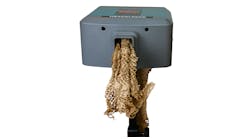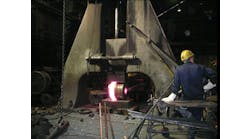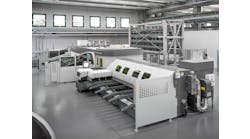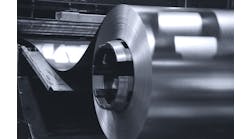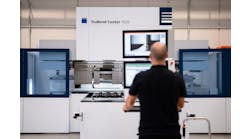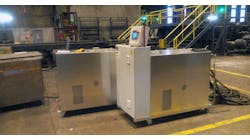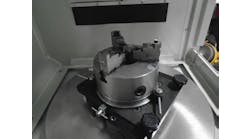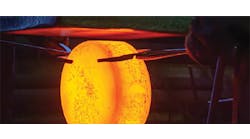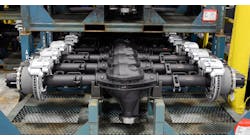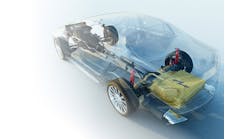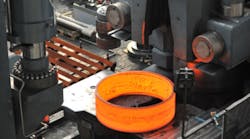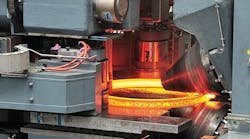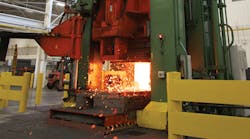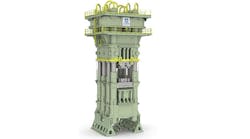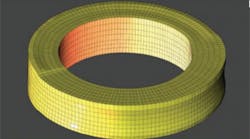Latest from Metal Forming
The first ring-rolling mill designed and built by Siempelkamp has passed its first test — the initial startup process conducted at the group’s manufacturing plant in Krefeld, Germany. In July, Siempelkamp produced the first steel rings on the mill, which is due to be delivered soon to JSC Metallurgical Plant Elektrostal, near Moscow.
Siempelkamp has designed and built metal forming machinery for decades, mainly closed-die and open-die forging machines, hydraulic presses for sheet metal forming, and hydroforming presses, among others.
Ring rolling is a hot rolling process, in which a ring-shaped workpiece is placed between two rolls that reform it in order to expand the roll diameter while narrowing its wall thickness. It’s a process that has seen increasing demand in recent years, as orders increase for aircraft, IGT, pipe, and pressure vessel manufacturing.
Siempelkamp’s new ring-rolling mill achieves maximum radial and axial pressing forces of 6,300 kN, making it capable of producing precision rings with external diameters up to 2,500 mm and heights up to 600 mm.
Siempelkamp manufactured the mill at Krefeld, assembled it there, and started it up to test the hot rolling process. It stated that the tests proved that mill would meet or exceed the customer’s specifications.
Elektrostal is a specialty steelmaker that produces forgings, discs, hot-rolled and forged bars, stampings, cold-drawn wire, hot-rolled sheet, and cold-rolled strip for both domestic and international distribution. Siempelkamp previously supplied Elektrostal with a 20-mt closed-die forging press, with integrated die heating. That machine will supply some feedstock to the ring rolling mill, according to the builder.
The ring-rolling mill will be installed in Russia at the end of this year and start operation in 2014.
Steel, Specialty Alloy Rings
The rings to be produced by Elektrostal will be steel and specialty alloy products, e.g., nickel-based, titanium, and aluminum alloys. Rings with rectangular or profiled cross-sections will be supplied to customers seeking mechanically and thermally stressed components for aerospace applications, Siempelkamp explained.
A number of design details will ensure “exceptionally high precision during ring rolling,” the designer indicated. For example, precision laser-measurement monitors ring diameter during rolling.
A process simulation program — SicoRoll — specially developed by Siempelkamp includes a function that takes into account the machine’s threshold values during production planning, so all rolling parameters are determined in advance. The program database stores the tool and material data, and it references the common rolling curves and strategies as the basis for the planning process.
The SicoRoll system can be expanded, according to Elektrostal’s needs, the developer indicated.
The rolling parameters calculated by the simulation program will be transmitted to the machine control program, ensuring an optimal ring rolling process and keeping the rolling parameters in synch with the process.
The rolling process can be fully documented and archived, too.
In addition to the rolling mill machinery and SicoRoll process simulation package, Siempelkamp’s scope of supply included a complete hydraulic system and roll automation platform, which supplies data on the dimensions of blanks for the closed-die forging press.
Siempelkamp explained that its machine design process relies on extensive FEM calculations that ensure high fatigue strength for the mechanical structural components. In addition, the housings for the tapered rolls (which endure high mechanical stresses during the production process) are designed as single-piece castings with no welds. All bearings are designed for high-endurance and long service life, too.
